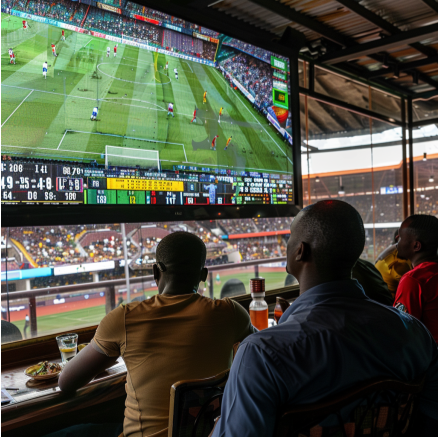Why Kenyan Music is Nothing Compared to that from Nigeria, South Africa, Uganda & Tanzania
Back in the 60s up until early 90s Kenya was the yardstick of Africa music. As an African artist if you didn’t record or release your single/album in Nairobi then would have started counting losses. It’s not a wonder why the likes of the late Tabu Ley, Mbilia Bel, Koffi, the late Franco, Defao (who I hear lives in Dandora, but that’s story for another day) and other accomplished African artists sang about Kenya or mentioned Kenya in their songs. Kenya ndo ilikua kusema (as our social media guru, Chege, puts it).
Fast-forward to the new millennium. Kenya’s glory in the music scene is fast dwindling and less and lesser artists are making their way here. Kenyan music videos are no longer getting airplay on Africa’s biggest music channel, Channel O (tell me of any 5 Kenyan music video you’ve recently seen playing on Channel O and I’ll buy you a crate of quail eggs).

Just like that we’ve witnessed Nigeria rise from just an oil-rich company into an African powerhouse for music and movies; and nothing is stopping them. Just like Kwaito is now a mainstay in our clubs and deejays’ mixtapes. Just like we are now aping the bongo-style of singing (Gospel notwithstanding).
But really what’s ailing this once very lucrative industry? Here’s what I think is;
1. Lack of unity
Which genre can we brag about as our identity in music? South Africans have kwaito, Tanzanians have bongo. But here…! every record label is emerging with its own style to outdo the other. Instead of concentrating on producing quality music they compete on who has the latest genre/sub-genre!
Meanwhile as we are mark-timing our African counterparts are reaching new horizons. You can’t compare even in your dreams Kenyan music to Naija’s, Bongo or Kwaito. Never!
Instead of artists working together to see the prosperity of this industry, they’re busy tearing each other down.

There are cartels fully in operation that ensure certain artist(s) makes it/ doesn’t make it in the industry. And if you thought it was a joke think again. These cartels pay some of the top radio hosts not to play music from certain record labels or artists. Yes, it’s deep-rooted like that.
These cartels are anchored so deep that they even exist in the Gospel scene. Kwanza I’m made to understand that it’s worse there before if you don’t belong to a certain faction your hopes of making it as a Gospel singer are as good as dashed.
This disunity has killed a lot of artists’ careers who wanted to be neutral and just do music roho safi.
2. Piracy

I don’t know why I didn’t enumerate it as the first point. All the same, we’re here.
Part of the reason why music industries in Tanzania and Uganda have made great strides is because piracy has totally been wiped out.
And it begins with you and I even before the government swings into action. Let’s appreciate artists’ effort because they like us are also looking to put ugali on their tables and so if you buy a pirated copy of an album you’re denying that artist their right to earn from their sweat and instead given that vendor something that doesn’t belong to them.
The government thro’ MCSK, PRSK and other music bodies are playing their role perfectly in trying to mitigate this vice, and all props to them, but their actions alone won’t go a long way without you.
Appreciate Kenyan, buy Kenyan and but genuine.
4. Greed
This has played the lead role in deterioration of standards. Most Kenyan artists are so freaking greedy and that is killing their careers.
You see an artiste sign a million-shilling contract with a leading corporate and then voila! life changes. Lad starts living la vida loca forgetting what tomorrow holds.And if you ask them they tell you;

6 months down the line he/she is dead broke!
This is the point that panic mode checks in, so does desperation. Artist with all reputation they’ve build for years starts performing at 20Gs gigs and just few months back if you (as a promoter) didn’t have few hundred thousands shillings you couldn’t afford him.
And once promoters/event organizers hear that you did a 20K gig, my friend that’s the beginning of the end for you because these guys compare notes. It’s then that all the offers you get don’t surpass the 20k mark and if it does, it’s with a few thousands, but NOT more than 30k, if you can negotiate above that come tell me.
The desperation now even drives you to perform your ‘ka-local’ joint before a crowd of 50 guys. When you’re here my friend, forget about leaving the country on invitation to perform, start quail farming.

Lesson: set your standards and stick by them. Greed will kill your career.
5. Lack of professionalism
Comparing Kenyan artists to their Nigerian counterparts in terms of artist organization is like comparing the performance of a Vitz to that of Rolls Royce.
There’s very little professionalism in the industry. Artists run their career jua kali way throwing caution to the wind. Music and acting is like any other white collar job and if you don’t take it seriously no fan will.

Look at guys like Davido, D’Banj, DJ Cleo, Mi Casa to name a few; they’ve got their house in order when it comes to communication and organization.
No, it’s not too late to make amends. We can still reclaim our glory as Africa’s music powerhouse.

